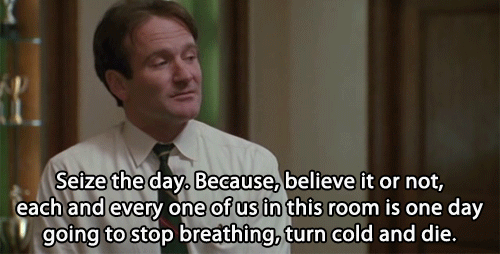
As I made sure to do the right things in order to successfully remember my dreams once I woke up, I started by following one of the comments from my Professor’s blog in which it suggested to put my notebook and pen under my alarm clock, so I did it. Once I woke up, I took my phone, which is my alarm clock, turned it off and immediately started writing about what I could remember. Once I started writing, I remembered only some details about my dreams, like the place I was or the people I was with while dreaming, but I didn’t remember most of my dreams. As I wrote about the things I could remember, my mind started pouring out all the details that I dreamed about and I quickly could remember many, if not all, of the details from my dreams, including other dreams I had the same night, which I started writing down as soon as I remembered the detail from the other dreams I had the same night, and went back to them when I finished writing about the dream I was currently remembering.
I
can say this activity had an impact on me because I usually don’t remember all
my dreams, and by doing this exercise it made me remember things that normally
I don’t remember from my dreams. This also impacted me because once I know what
I dream about, I can relate it to the things that are happening to me at the
moment, and I found out that they’re HUGELY RELATED! They are not only related,
but also they may seem as to have some solutions to the problems or the
dilemmas I am having this current week and if I wouldn’t have wrote about them
maybe I wouldn’t remember my mind had set out the solutions to them already.
Something
not completely related to the activity, but that I often do, is the fact that
when I dream of something really odd I tend to look for the symbolism behind it
through the internet or from a book I have at home called “The Book of Dreams”
which has many kinds of meanings to the things you dream about. For example the
other day I dreamt about being stuck in an elevator between floors, I could get
out but the elevator was still stuck. I looked for the meaning of this and it
said: “To dream that the elevator is out of order or that it is not letting you
off symbolizes that your emotions have gotten out of control.” And as a matter
of fact, this week my emotions have been REALLY OUT OF CONTROL!
Here is the link from where I mostly get the symbolisms in
my dreams on the Internet: http://www.dreammoods.com/dreamdictionary/






